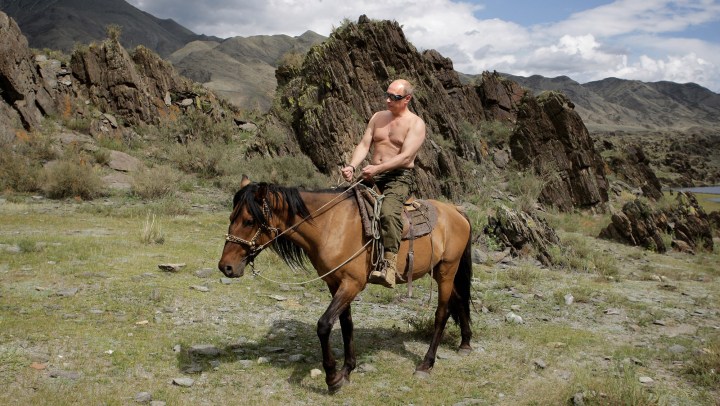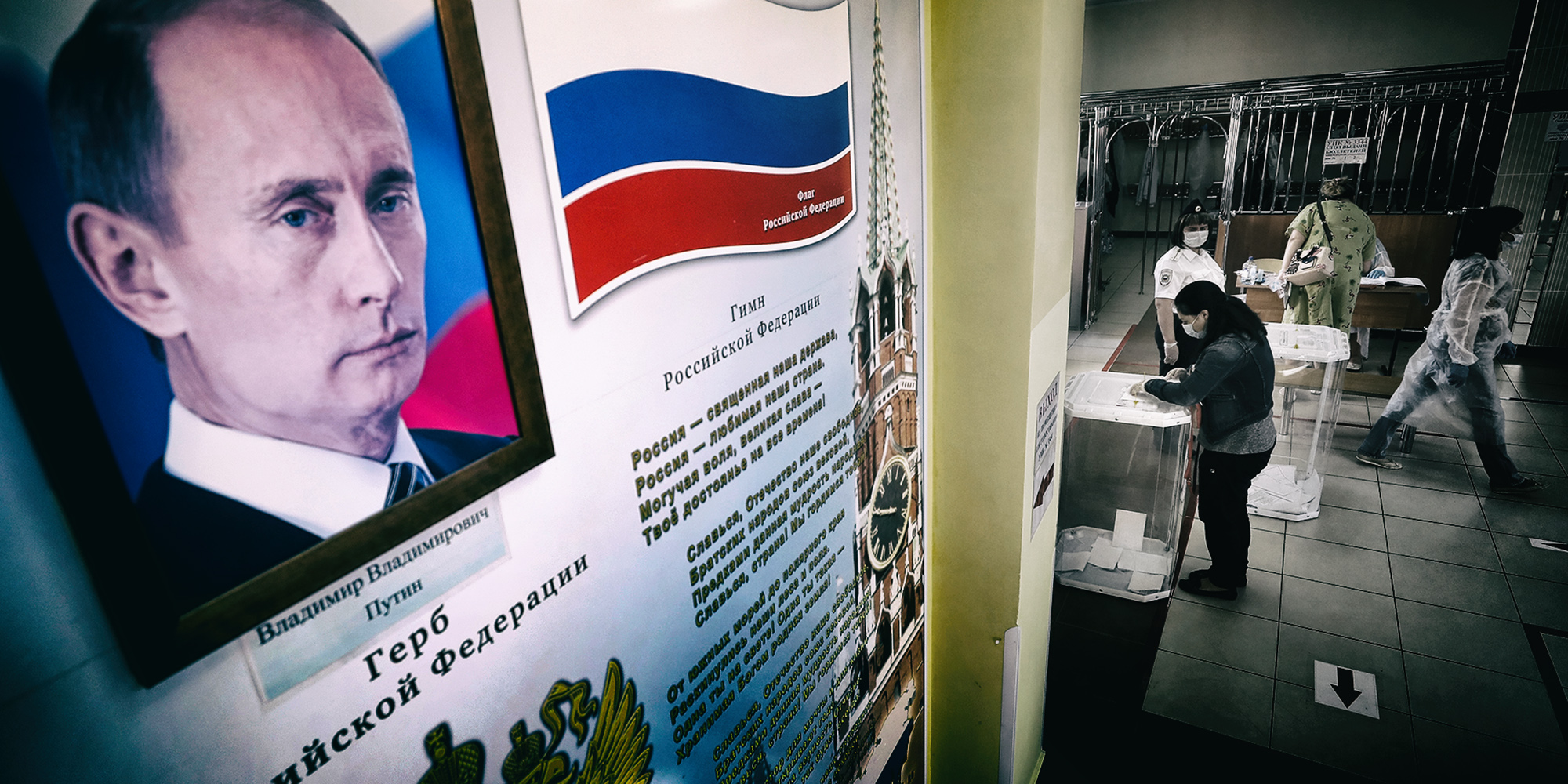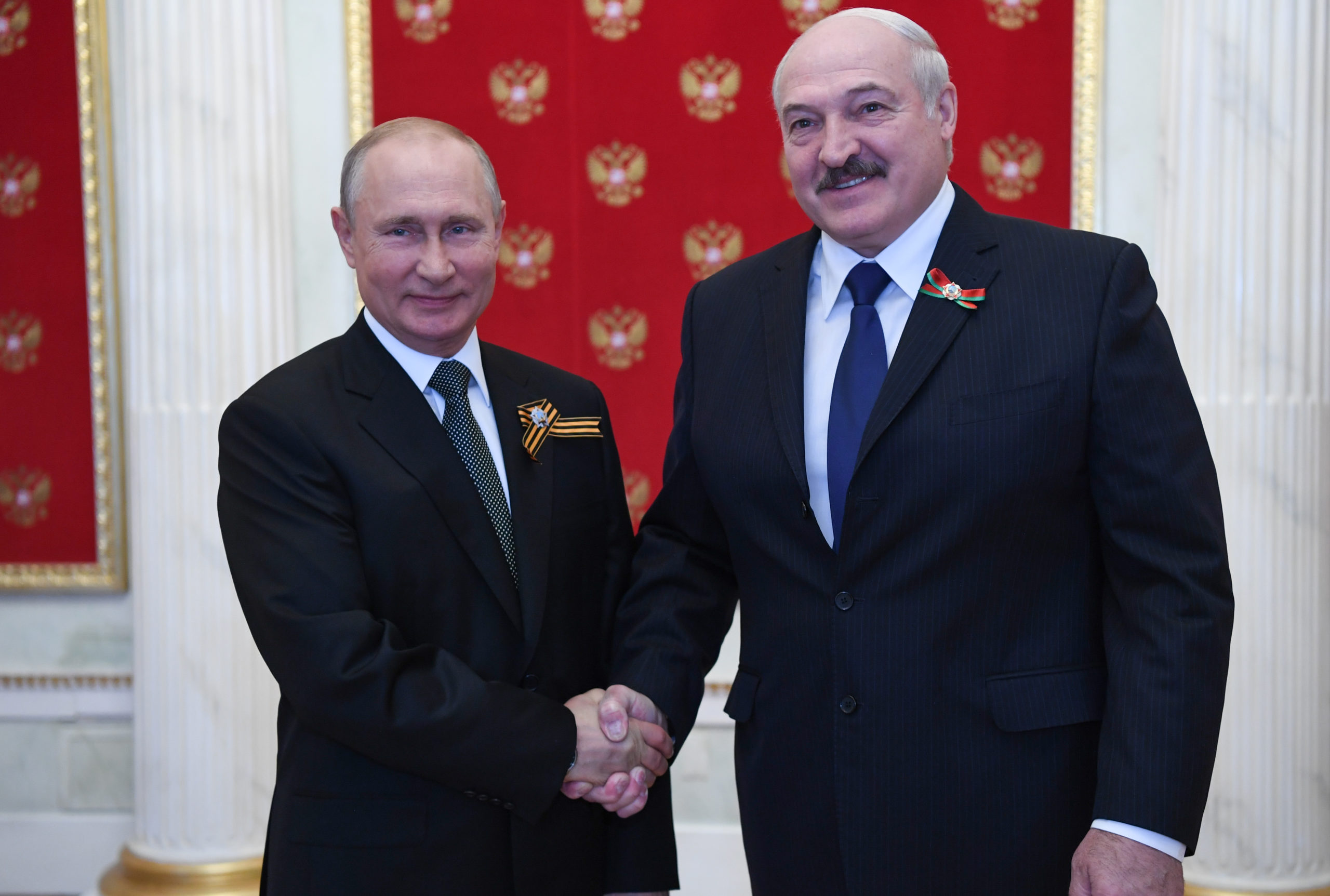RUSSIA
Vladimir Putin, 21st Century’s Peter the Great?

Russia’s recent referendum to give Vladimir Putin the opportunity to rule until nearly forever may help keep Russia in the international geostrategic game — or simply postpone the inevitable.
The Russian referendum to make a crucial change in the country’s constitution, reinforcing an earlier decision by the Duma, the nation’s parliament, passed by an overwhelming landslide among voters. This was no surprise, given Vladimir Putin’s continuing popularity, of course, and the result probably needed little in the way of classic Chicago-style vote counting to make things come out right.
As Canadian publication Global News described the vote, it was, “…the grand triumph that Vladimir Vladimirovich Putin achieved Wednesday in a national referendum that extended his right to serve as president through at least 2036. [It was] ratified by more than three-quarters of voters after sailing through Russian parliament in March.
“…[W]hether all the previous elections he has won or this plebiscite have been fixed in his favour is of no great importance. He would have easily won them anyway. That is true. Not one of Putin’s election landslides since 1999 was ever in doubt.” The logical question, then, is: why bother?
To which, Global News offers this surmise: “At a guess, the president likes the cover that this sham veneer of democracy provides because, as he sees it, it somehow legitimizes his rule. It may also comfort him knowing that Russians still love him, though his popularity has dipped in recent polls as Russia confronts the harsh reality that more than 650,000 of its people have been infected with the coronavirus and prices of oil and gas exports, which are the backbone of the economy, have plummeted.
“To get the overwhelming victory that every self-respecting Russian dictator expects, it was felt best to hold the vote over seven days, rather than on one day, and to make Wednesday a national holiday. An added incentive for voters to cast their ballots was that those who did so got vouchers that they could use to shop at places such as supermarkets or toy stores.” In addition, one-off payments of 10,000 roubles (around $150) were made to those with children, at Putin’s order, as people headed to polling stations on Wednesday, the last day of the vote. Yup, things like that are probably better than strategically delivered food parcels.
“By the time the fun was over, Russia’s Central Election Commission said 77.9% of the votes in a total national turnout of 65% supported changing the constitution. Commission head Ella Pamfilova insisted the vote had been transparent, and that officials had done everything to ensure its integrity. Not surprisingly, opposition politician Alexei Navalny felt rather differently about it. He said the vote was an illegitimate, illegal show put together to legalise Putin’s presidency for life. In a video message to his supporters, Navalny said, ‘We’ll never recognise this result,’ and while they would not carry out protests now because of the pandemic, they would come out in big numbers, come autumn, if Navalny’s party’s candidates were prevented from taking part in regional elections — or if their results were falsified.”
Global News added there was another clever wrinkle in the way the vote was carried and it meant that a “…vote against extending presidential term limits for Putin also meant automatically rejecting constitutional amendments on such motherhood issues as pension protections and remembering those Russians who were killed in World War II. Another of the many amendments attached to the ballot banned same-sex marriages, a prohibition that was strongly backed by Putin and the Russian Orthodox Church.”
Having already served as president for a total of 16 years, and as prime minister for a period of four years between two separate eight-year presidential runs, and as prime minister for almost two years before first becoming president as Boris Yeltsin faded from view, the approved constitutional amendment now allows him to remain in his current office without interruptions until 2036, assuming he won the requisite elections.
Now 67 years old, that would mean Putin could continue to be his country’s president until he is nearly 84 years old. Cumulatively, that would mean he could end up as the country’s longest-ruling leader ever, even longer than Joseph Stalin’s tenure, or the 43 years on the throne by the 18th-century ruler, Peter the Great.
Over his already two decades-plus at or near the top, Putin has accumulated a deep reservoir of experience with the country’s levers of power over the bureaucracy, the military, a significant impact on the economy, and in shaping the country’s international standing. Given neighbouring China’s recent constitutional changes that now effectively allow their leader, Xi Jinping, to rule until the Chinese cows come home, it means two of the most important nations on the planet will be led by men whose knowledge and experience will quite literally span decades.

A woman votes on 1 July 2020, the main day of a nationwide vote on amendments to the Russian constitution, next to a portrait of Russian President Vladimir Putin at a polling station in Moscow. (Photo: EPA-EFE / Maxim Shipenkov)
By contrast, the largest Western nations, as well as others like South Korea, Japan, India, Indonesia and Brazil continue to experience regular elections and succession of leaders — sometimes with truly alarming results. Nevertheless, routine, periodic elections at least offer the possibility of replacing the most egregious, incompetent, buffoonish and foolish ones.
Accordingly, an ease with the control of state power and deep experience in its exercise for those two national leaders may well help shift the global dynamic towards the duopoly of China and Russia in the years to come. Leaders in other nations may need to factor such shifts into their thinking, should it occur.
But beyond his lengthy experience as Russia’s formal leader (or in reality if not in nameplate on the door), and the learning that came from it, Putin obviously also had an earlier career and the experience he gleaned from it as well. This came along years before he held the reins of power in Moscow, and even before he began his ascent through lesser offices in St Petersburg.
Putin had been a KGB officer in East Germany and had watched firsthand — in disbelief — the collapse of the Soviet empire. (See the reporting on his experience in East Germany on the day that transformed Eastern Europe.) Then, returning home, he watched the collapse of the Soviet Union itself.
A student of Russian history, by his own admission, Putin has steeped himself in the writings of 19th-century Russian historians. (Here find a discussion of Putin’s reading taste: the president’s nightstand.) From this background, Putin has repeatedly said the disintegration of the Soviet Union was the 20th century’s greatest tragedy — and, presumably, he is now dedicating himself to reversing Clio’s bitter joke on his nation.

Russian President Vladimir Putin (L) shakes hands with Belarus President Alexander Lukashenko (R) during their meeting in the Kremlin in Moscow, Russia, 24 June 2020. Alexander Lukashenko arrived in Moscow to attend the military parade marking the 75th anniversary of the victory over Nazi Germany in the World War II which takes place in the Red Square on 24 June 2020, as the traditional troops parade as part of the Victory Day Parade which is annually held on 09 May, was cancelled due to Covid-19 epidemic in Russia. EPA-EFE/ALEXEY NIKOLSKY / SPUTNIK / KREMLIN POOL MANDATORY CREDIT
Interestingly, China’s Xi and his government’s officials have often phrased their international efforts as those aimed at reversing the effects of the century of humiliation that came to China from the actions of the Western powers in the 19th century, and then on through the baleful effects of World War II on China on top of those earlier disasters. If words have meaning, this, similarly, animates a significant share of Chinese efforts in the geopolitical sphere.
For Russia, though, their particular geopolitical reality may be less auspicious over the longer term, despite Putin’s experience at playing a rather weak hand of cards to best effect — at least from his perspective. At the recent (postponed due to Covid-19) victory over Germany celebrations and military parade, the visiting foreign leaders told a sobering tale. While the tanks, troops, flags, banners and all the rest were much in evidence, the dignitaries on the reviewing stand and in the VIP seating barely included anyone beyond leaders from a clutch of former Soviet states in Central Asia.
Putin’s Russia has been successful in reestablishing a kind of sphere of some influence in Belarus, and in occupying some separatist portions of Georgia and Ukraine, as well as formally and forcibly annexing Crimea. Moreover, its population is projected to shrink in coming years, key health indicators are in trouble, it is labouring under a large Covid-19 explosion, and it has grave environmental concerns — especially as global warming melts the permafrost in major parts of Siberia.
Its exports largely comprise primary products like oil and natural gas, and they are being used in an effort to gain some leverage over nations like Germany. (However, its recent price war with Saudi Arabia over the price of petroleum proved less than successful.) Its other key exports continue to be things like transport to the International Space Station, well-designed, rugged, and competitively priced military gear, and state-connected soldiers-for-hire of the Wagner Group, now operating in various parts of Africa, for example.
But no one beyond Russian officials is seriously considering — or offering up — Russia as an appropriate development model for other nations. Moreover, beyond an allied relationship such as with Bashar al-Assad’s regime in most of Syria, a touchy tie with Iran and an on-again-off-again frenemy partnership with Recip Erdogan’s Turkey, the most visible of its relationships, there remain few obvious places for it to ally with for geostrategic benefit.
China is significantly different. This clearly derives in part from its growing economic heft and the impact of its Belt and Road Initiative and the economic connections of the Shanghai Cooperation Council. But it also stems from a global discussion and analysis of how China’s developmental state characteristics may be key to other nations’ plans for their own economic success.
Global News also offered some further cautionary notes about Putin’s future, noting he “has mostly hidden from public view throughout the Covid-19 crisis as the infection rate in Russia has soared and the economic fallout has worsened. Regional and municipal politicians have been left to do the heavy lifting…
“Internationally, Putin faces a significant new problem with the United States. Republican and Democrat politicians in Washington have been furious over damning revelations that Russian military intelligence placed a bounty on the heads of US troops in Afghanistan…
“Perhaps worst of all, polls in the US show that Putin’s friend and sometime ally Donald Trump’s re-election bid this November is in serious jeopardy. Without Trump giving him a free pass, Putin may finally get much stronger pushback from the US for seizing Crimea from Ukraine, fomenting a brutal civil war in eastern Ukraine, having closer ties to Iran and interfering in the last US presidential election.
“With so many woes and an emerging global landscape where Russia is now a distant third and falling in the superpower table behind the US and China, Putin’s next 16 years as dictator may be far more problematic than his first 21 years. He should be more careful what he wishes for.”
Still, with what is potentially a decade-and-a-half to look forward to as a national leader, in tandem with his strategic vision, it is a reasonable bet Putin may still be able to parley Russia’s position globally beyond its actual economic weight. This is especially true if foolish and gullible leaders like Trump (or others who might follow his approach) continue to find ways to allow the Russian president to exercise undue leverage. In this sense, going forward, Putin’s best card to play may remain his influence over the world view of Trump or others like him. DM




















 Become an Insider
Become an Insider